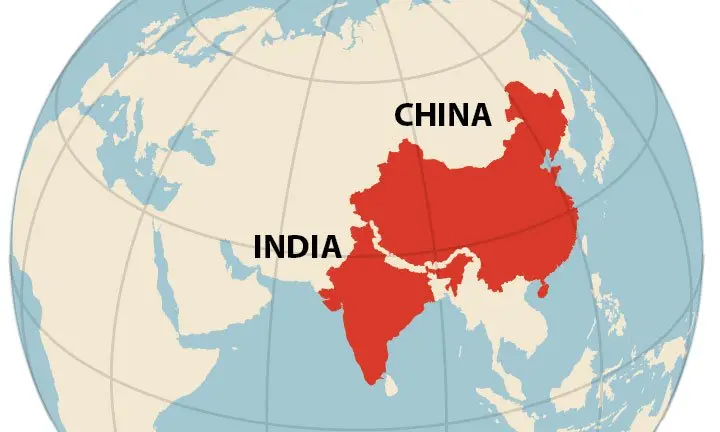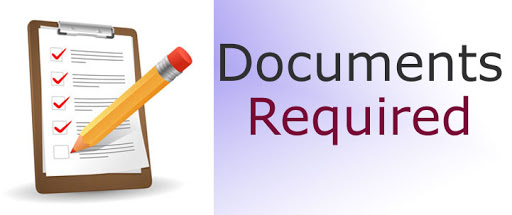- By TOP CHINA FREIGHT
- September 3, 2025
- Shipping
Table of Contents
Importing goods from China to India is a popular strategy for businesses looking to source cost-effective products. However, many face challenges such as fluctuating freight rates, customs clearance issues, and logistical delays. This guide explains how to import goods from China to India efficiently, covering shipping methods, documentation, costs, and best practices for smooth supply chain management.

What Are the Main Shipping Methods from China to India?
There are three primary methods to import goods from China to India: sea freight, air freight, and express courier services.
| Shipping Method | Average Cost | Transit Time | Pros | Cons |
|---|---|---|---|---|
| Sea Freight (FCL/LCL) | $800–$3,000 per container | 15–30 days | Cost-effective for bulk shipments, large capacity | Slower, requires port handling |
| Air Freight | $5–$10 per kg | 3–7 days | Fast delivery, ideal for urgent goods | Expensive, limited weight |
| Express Courier | $10–$25 per kg | 5–10 days | Door-to-door, easy tracking | High cost for bulk shipments |
Tip:
Sea freight is ideal for large shipments, while air freight is best for urgent, high-value goods.
How Much Does It Cost to Import Goods from China to India?
Costs vary depending on shipping method, cargo weight, and type of goods.
| Container Type | Cost (USD) | Suitable Cargo |
|---|---|---|
| 20ft Container | $800–$1,500 | Small to medium shipments |
| 40ft Container | $1,500–$3,000 | Large shipments |
| LCL (Less than Container Load) | $50–$150 per cubic meter | Small or partial shipments |
What Affects Shipping Costs from China to India?
Several factors influence the final shipping cost:
1.Shipment volume and weight:
Heavier and larger shipments cost more.
2.Fuel surcharges:
Fluctuations in fuel prices affect freight charges.
3.Port and route:
Major ports like Shanghai or Ningbo to Mumbai or Chennai have higher frequency and reliability.
4.Seasonal demand:
Chinese New Year and Q4 see higher rates.
Tip:
Consolidate shipments when possible to reduce cost per unit.
Typical Transit Time for China to India Shipments
Transit time depends on shipping method and port.
| Route | Transit Time | Notes |
|---|---|---|
| Shanghai to Mumbai | 18–25 days | Sea freight, reliable schedule |
| Shenzhen to Chennai | 15–22 days | Sea freight, frequent sailings |
| Beijing to Delhi | 3–7 days | Air freight, faster but costly |
Pro tip:
Consider inland transport time in India when selecting ports to minimize overall delivery time.
Which Documents Are Required to Import Goods from China?

Understanding Tanzania’s customs requirements ensures you avoid costly delays. Typical charges and documentation include:
| Document | Purpose |
|---|---|
| Commercial Invoice | Declares shipment value |
| Packing List | Details cargo volume and weight |
| Bill of Lading / Air Waybill | Proof of carriage |
| Certificate of Origin | Verifies preferential trade agreements |
| Import License (if required) | For restricted products |
Tip:
Use accurate HS codes and pre-calculate duties to prevent clearance issues.
Should You Choose Sea or Air Freight?

The choice depends on shipment size, urgency, and budget:
Sea Freight:
- Pros: Cost-effective, suitable for bulk cargo
- Cons: Slower, port handling needed
Air Freight:
- Pros: Fast, reliable for urgent shipments
- Cons: Expensive, weight limitations
Case Study:
A retailer imported 500 electronic gadgets via air freight. Although the cost was 40% higher than sea freight, the goods arrived in 5 days, avoiding stockouts during peak demand.
How Can a Freight Forwarder Help with China-India Shipments?
Ensuring invoices, packing lists, and customs forms are accurate
Consolidating LCL shipments or negotiating FCL rates
Real-time monitoring of cargo status
Avoiding fines and delays
What Are the Benefits of Consolidated Shipping?
For smaller shipments, LCL (Less than Container Load) shipping is cost-effective:
| Benefit | Explanation |
|---|---|
| Lower Costs | Share container space, pay only for your cargo |
| Flexibility | Ship small quantities without a full container |
| Eco-friendly | Fewer shipments reduce carbon footprint |
Tip:
Compare LCL and FCL based on your monthly shipment volume for maximum cost efficiency.
How to Track Your Shipment from China to India?
Modern shipping allows real-time tracking through:
1.Forwarder portals:
Monitor container movement
2.Air Waybill tracking:
For air freight
3.Courier tracking numbers:
For express services
Tip:
Tracking helps anticipate delays and manage warehouse logistics in India effectively.
Common Challenges When Importing Goods from China to India
Missing or incorrect documents
Weather, port congestion, or logistics bottlenecks
Fuel surcharges, seasonal rates
Improper packaging or handling
Example: Importing Furniture from Shanghai to Mumbai
| Parameter | Details |
|---|---|
| Shipment Type | FCL 40ft container |
| Cargo | 200 wooden chairs |
| Cost | $2,200 including customs and insurance |
| Transit Time | 22 days |
| Outcome | Smooth delivery, zero customs issues |
This example illustrates how proper planning and working with a reliable shipping agent ensures efficient and cost-effective imports.
Conclusion
Importing goods from China to India requires careful planning, accurate documentation, and the right shipping method. By understanding sea freight and air freight options, working with a professional China shipping forwarder, and planning shipments strategically, businesses can reduce costs, avoid delays, and streamline the supply chain. Whether importing electronics, furniture, or industrial goods, the right logistics strategy ensures timely, reliable delivery.
Need a Shipping Quote?
If you want expert guidance and peace of mind, our team is ready to assist.
TJ China Freight offers tailored solutions to help businesses of all sizes ship more reliably from China.

FAQs
Q1:How long does it take to import goods from China to India?
Transit times vary by shipping method. Sea freight usually takes 15–30 days, air freight 3–7 days, and express courier 5–10 days. Delays may occur during peak seasons or customs inspections.
Q2:What documents are needed for customs clearance?
Essential documents include commercial invoice, packing list, Bill of Lading or Air Waybill, certificate of origin, import license, and insurance certificate. Accurate paperwork ensures smooth clearance.
Q3:Can a freight forwarder help reduce costs?
Yes. Forwarders consolidate shipments, negotiate rates, handle documentation, and provide tracking, saving both time and money.
Q4:Are there seasonal cost fluctuations?
Yes. Chinese New Year and Q4 often increase rates due to higher demand. Planning shipments during off-peak periods can reduce costs and prevent delays.
Q5:How do I track shipments from China to India?
Tracking is possible via forwarder portals, Air Waybill numbers, and courier tracking. Real-time tracking helps manage logistics and anticipate delays.
